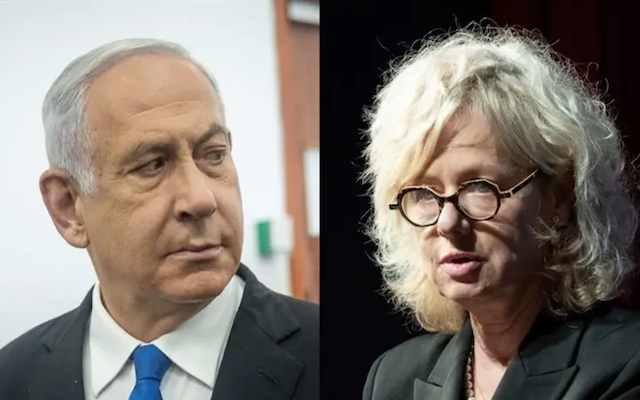Later today (Sunday) is slated to be a pivotal moment in Israeli politics, as Attorney General Gali Baharav-Miara is expected to present a crucial legal opinion to the High Court of Justice. The central issue at hand is whether Prime Minister Benjamin Netanyahu has violated an existing conflict-of-interest agreement. Formulated to allow Netanyahu to continue serving as Prime Minister while simultaneously undergoing a criminal trial, this agreement strictly prohibits him from engaging in any activities concerning the judicial system. The Attorney General's expected stance comes on the heels of a Channel 13 report released this past Friday, suggesting that Netanyahu may be infringing upon this critical agreement.
The agreement in question is particularly consequential for Netanyahu because his government has been aggressively championing legislative reforms aimed at overhauling the judicial system. In doing so, he could very well be in direct breach of the agreement that, ironically, allows him to maintain his current political position. One could argue that the government's aggressive push for legislative changes affecting the judiciary complicates an already intricate legal and political landscape.
The Justice Ministry, as per the Channel 13 report, remains uncertain on how to proceed with this contentious issue, thus adding a layer of complexity to an already charged atmosphere. This apparent indecisiveness within the ministry might be symptomatic of the gravitas surrounding the Attorney General's impending decision. For Netanyahu, the situation has been a cause for growing concern, particularly since Baharav-Miara had indicated as early as March that he was in violation of the conflict-of-interest agreement. The Prime Minister’s apprehensions have been exacerbated by Baharav-Miara’s remarks following his own admissions of involving himself in the plans to reform the judiciary.
In another development that highlights the complexity of the situation, Baharav-Miara is advocating for the court to invalidate the Recusal Law. Enacted this year in March, the law serves to protect the Prime Minister from court or Attorney General orders that may require him to step down. However, Baharav-Miara has signaled that, despite her stance on the Recusal Law, she is not currently considering enforcing any such order against Netanyahu.
Report: AG to tell court Netanyahu is in violation of conflict of interest agreementhttps://t.co/4VMvWjImlV
— Jaun News Usa (@jaunnewsusa) September 9, 2023
Further complicating the narrative is a rising wave of online threats and incitement aimed at key legal figures, most notably Baharav-Miara herself and Supreme Court Chief Justice Esther Hayut. As contentious cases continue to flood the High Court—many of them relating to the Prime Minister and the judicial reforms—the online hostilities have ramped up, necessitating heightened security measures for Supreme Court judges.
In an attempt to provide some degree of legislative stability, the High Court had previously placed an injunction on the Recusal Law in August. This law, being part of Israel’s quasi-constitutional Basic Laws, will have petitions against it heard by the court on September 28. In a recently proposed but yet-to-be-accepted compromise from the President's Residence, Netanyahu has been insistent that the Recusal Law remains untouched and in effect under all conditions.
The conflict of interest petition: AG will claim that Netanyahu is violating the agreement. After a petition was submitted stating that Netanyahu violated the conflict of interest agreement, at the beginning of next week AG Baharav-Miara will submit her position to the High Court… pic.twitter.com/qA3yqFjBRE
— Eli Dror (@edrormba) September 8, 2023
Lastly, an air of defiance emanates from the legislature. Knesset Speaker Amir Ohana has vociferously warned that overturning a Basic Law could "plunge us into the abyss," a sentiment Netanyahu subsequently endorsed. This adds a new dimension of tension, as the judiciary and the legislature appear to be on a collision course over authority, legality, and separation of powers. It remains to be seen how this complex tapestry of legal, political, and social threads will be unraveled in the coming days and weeks.


